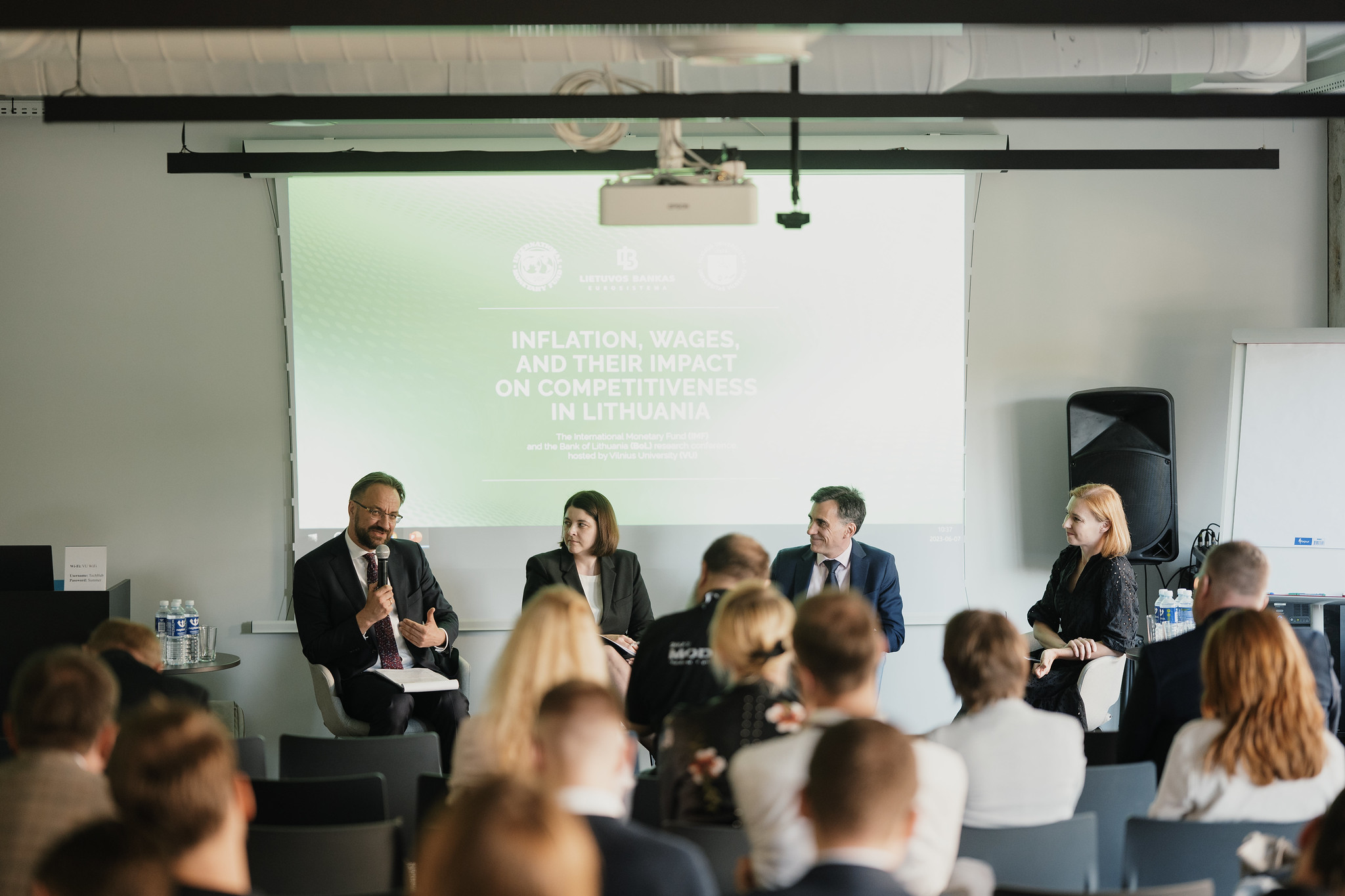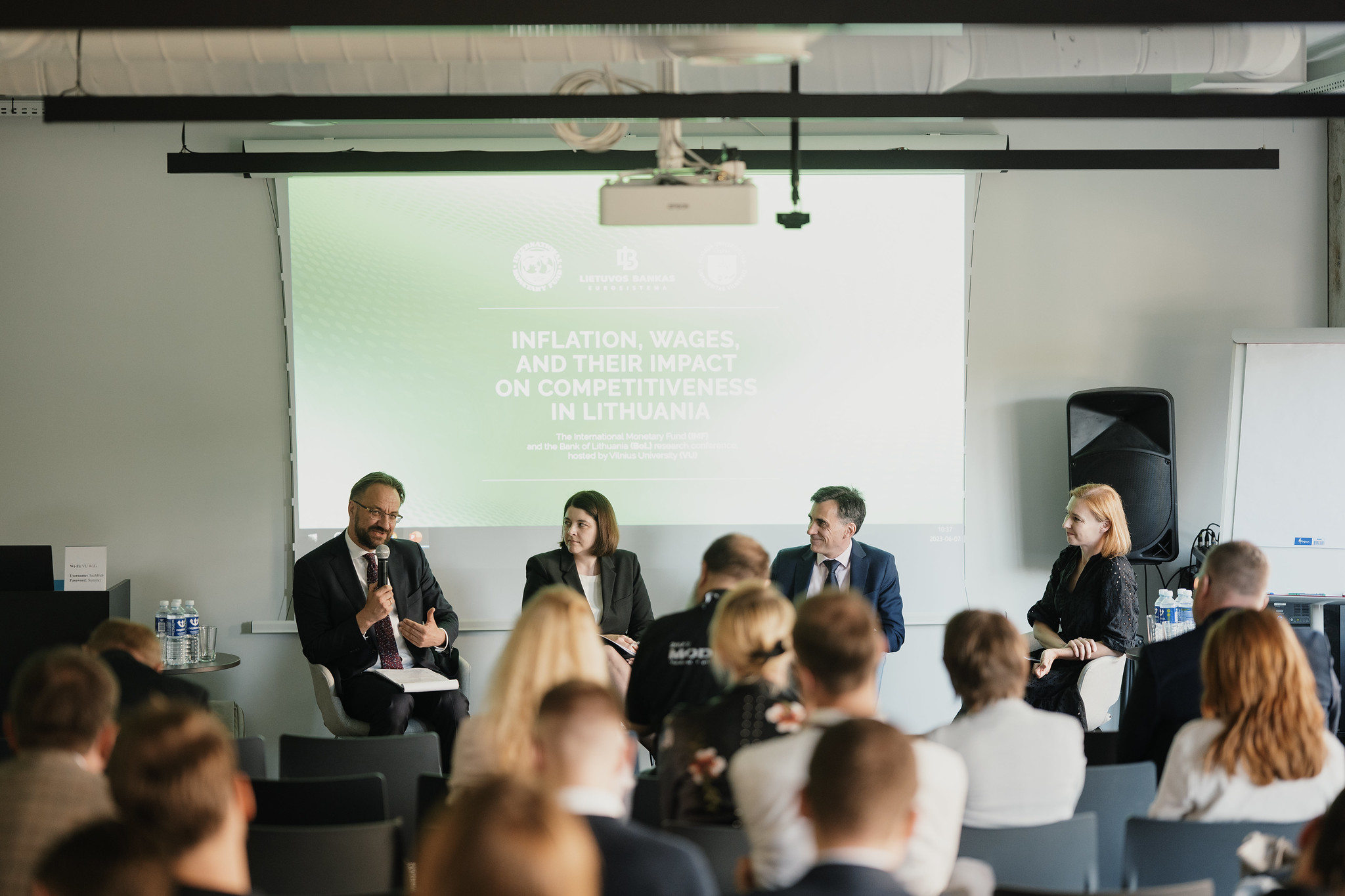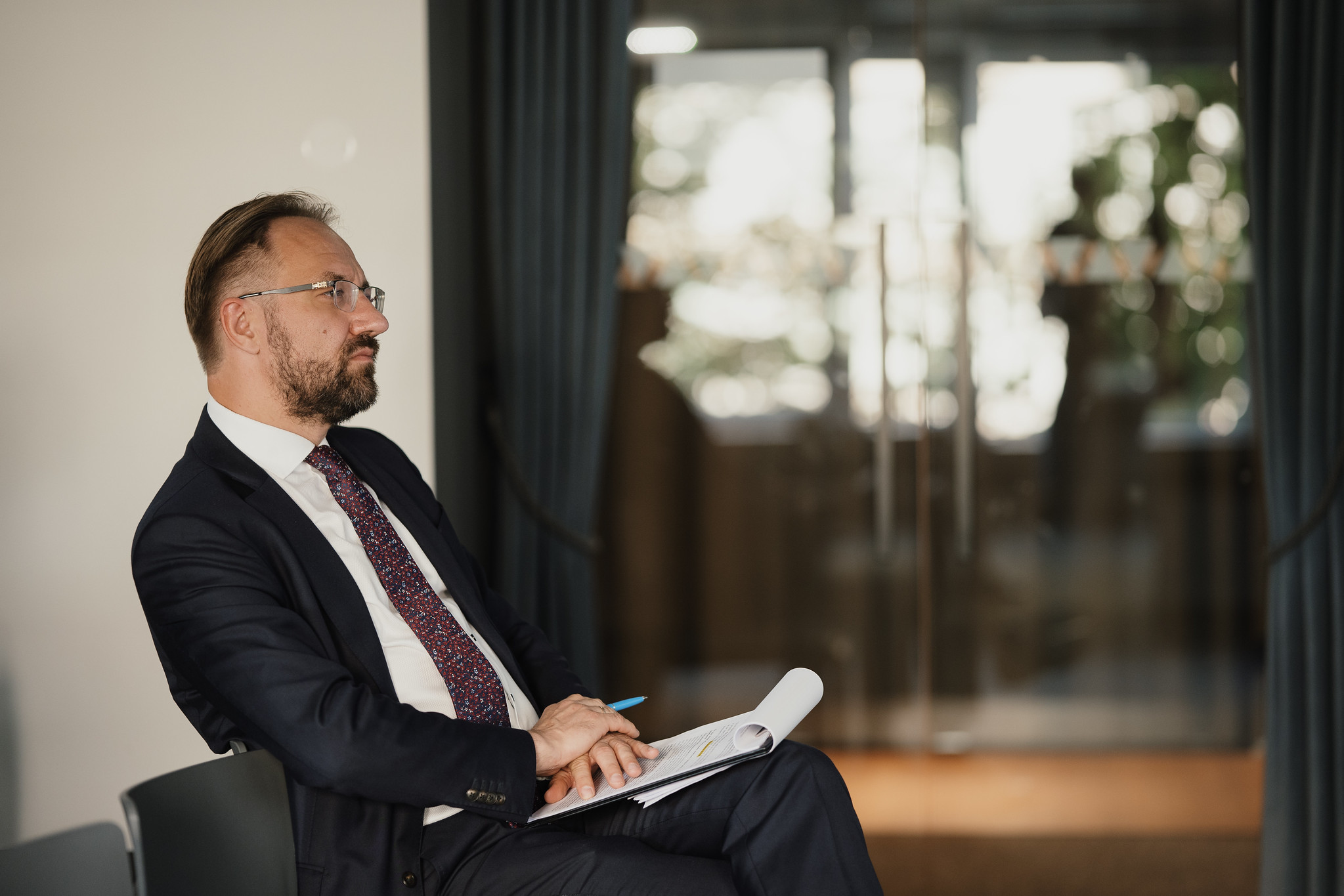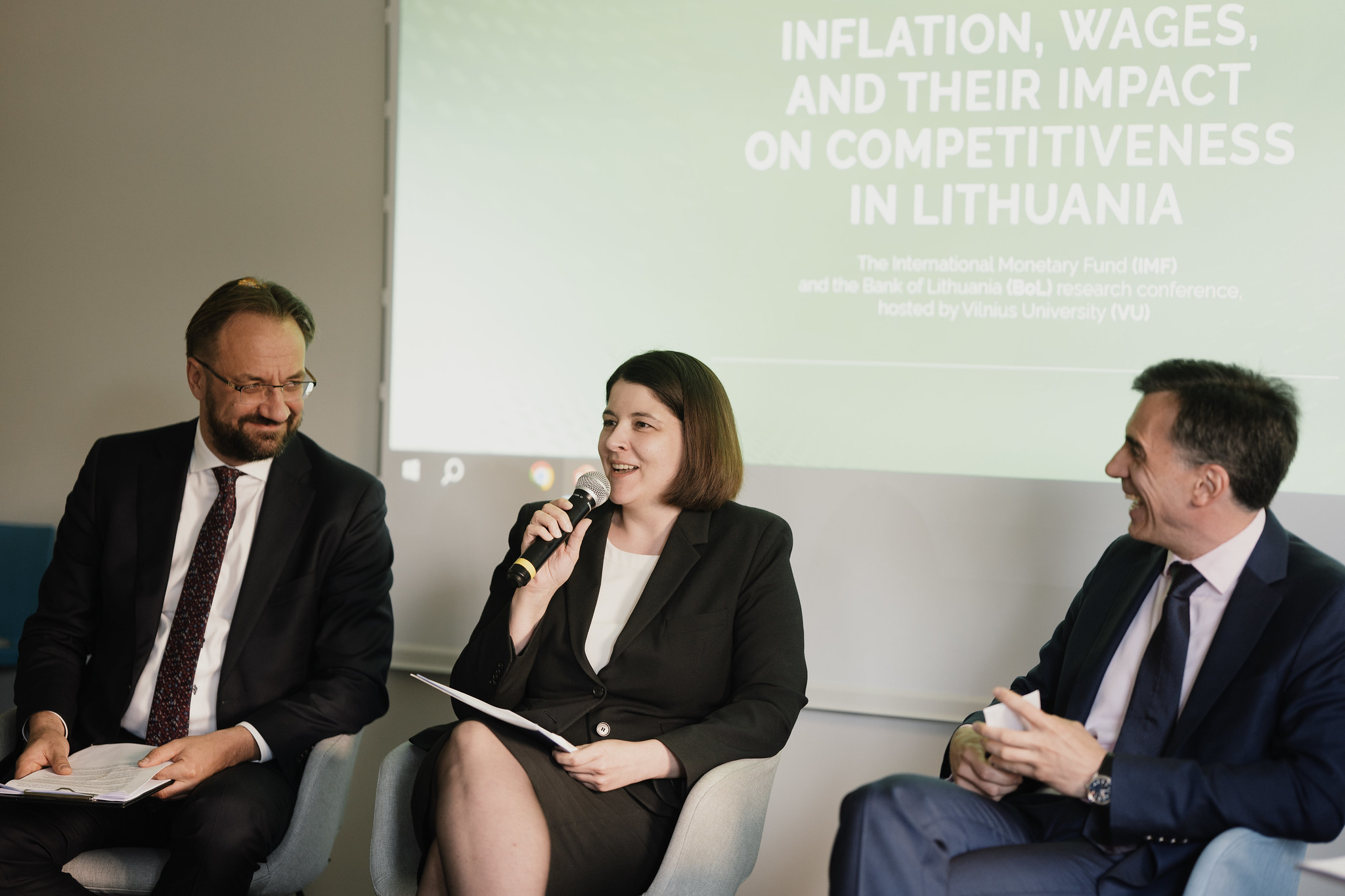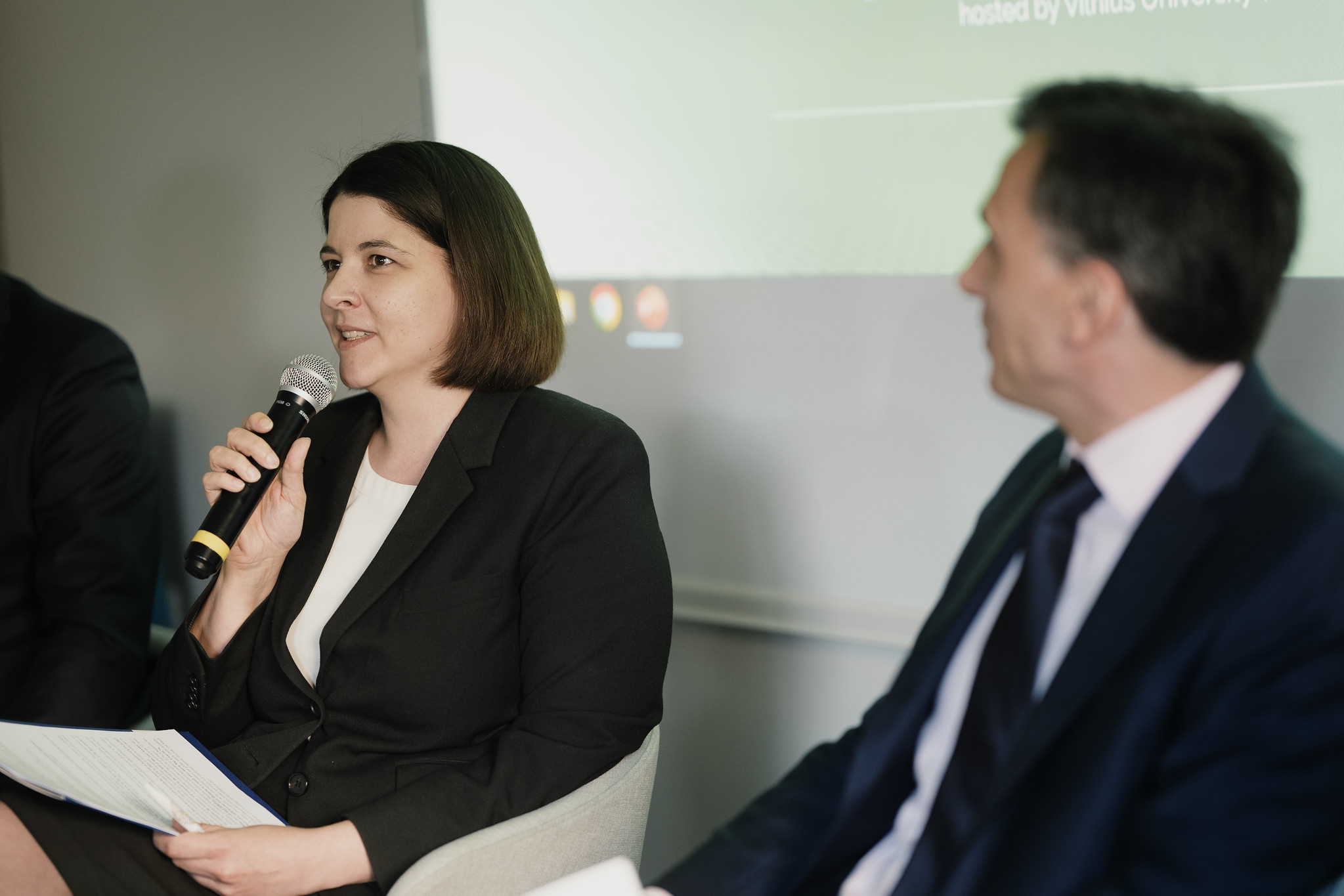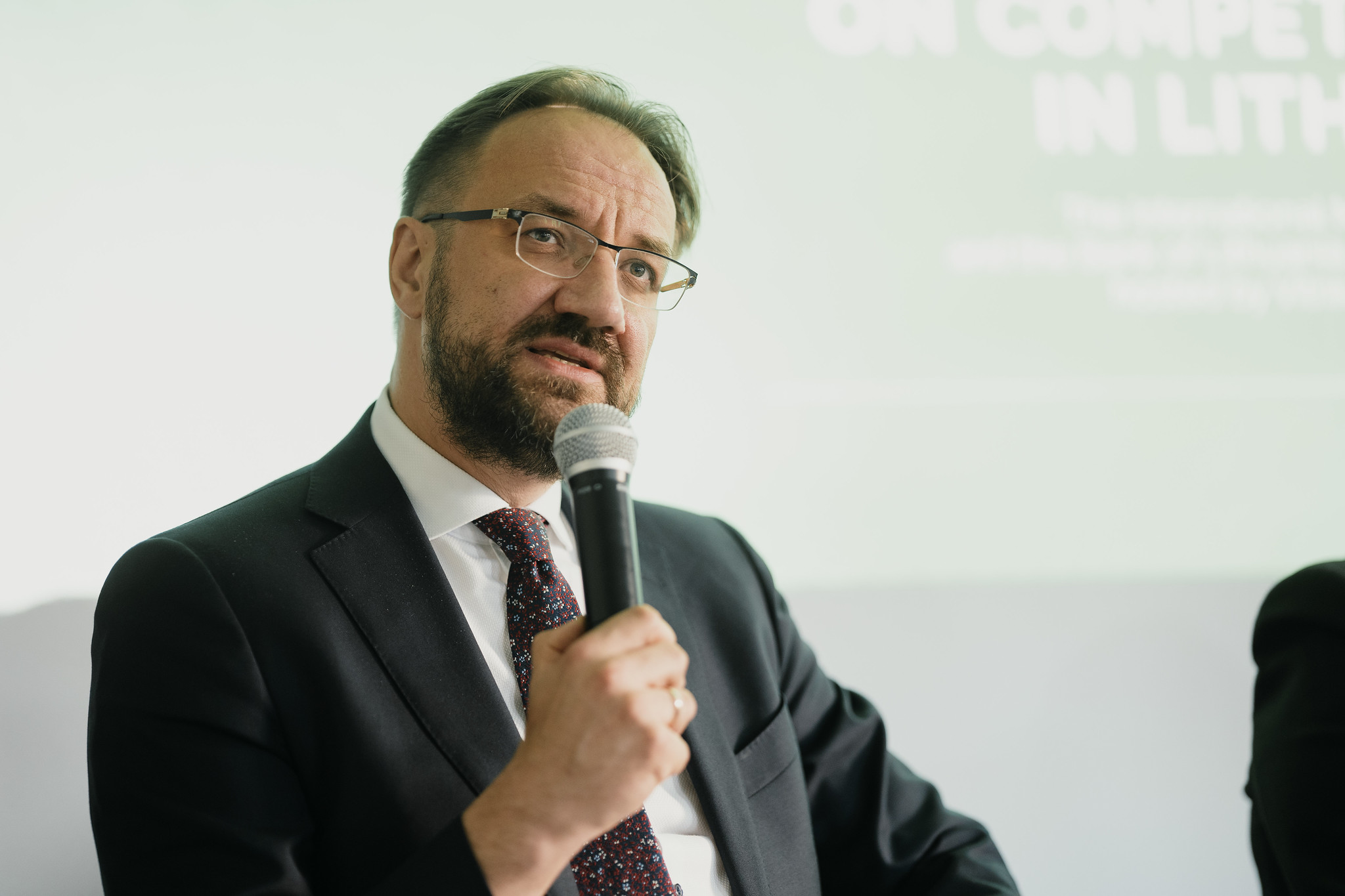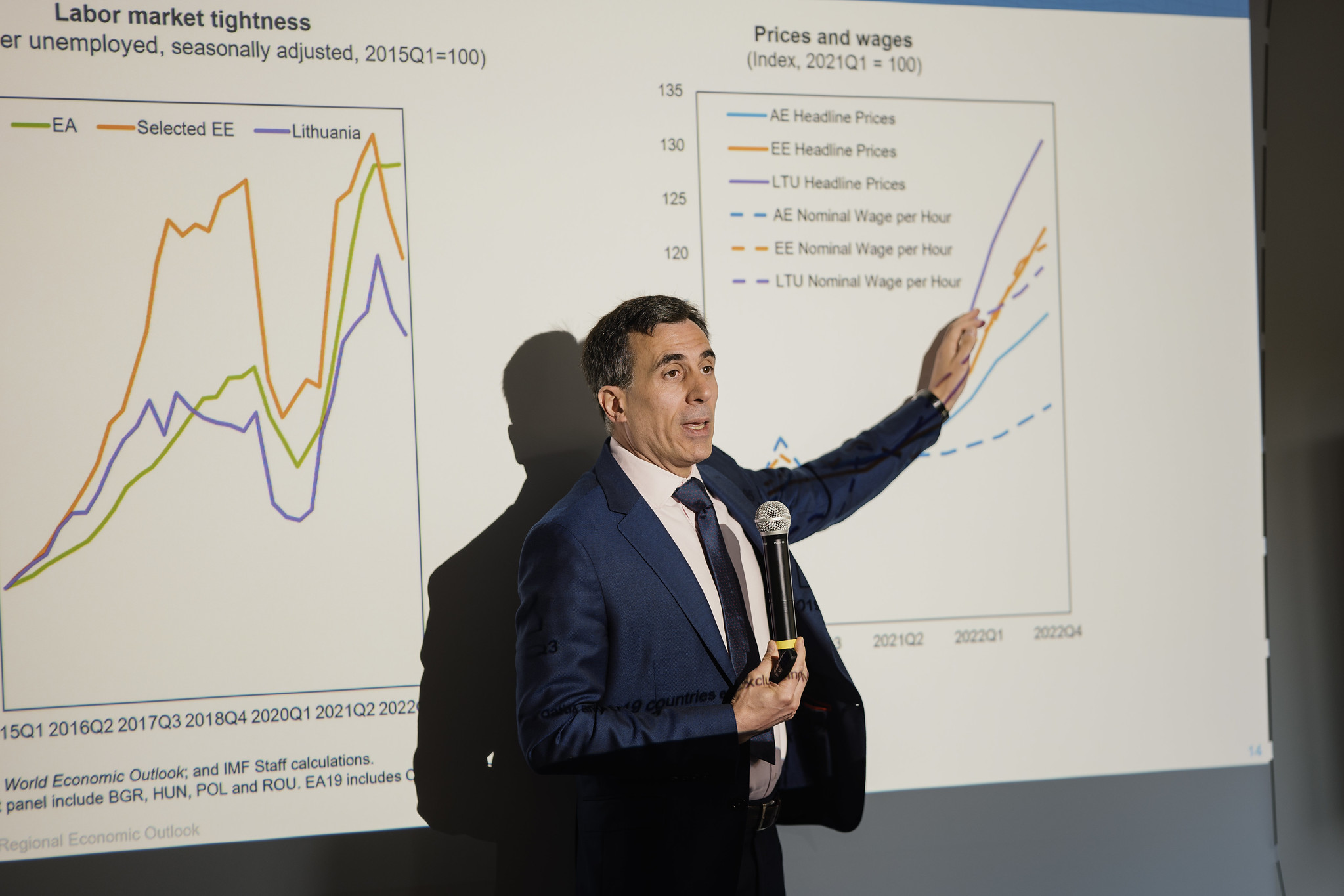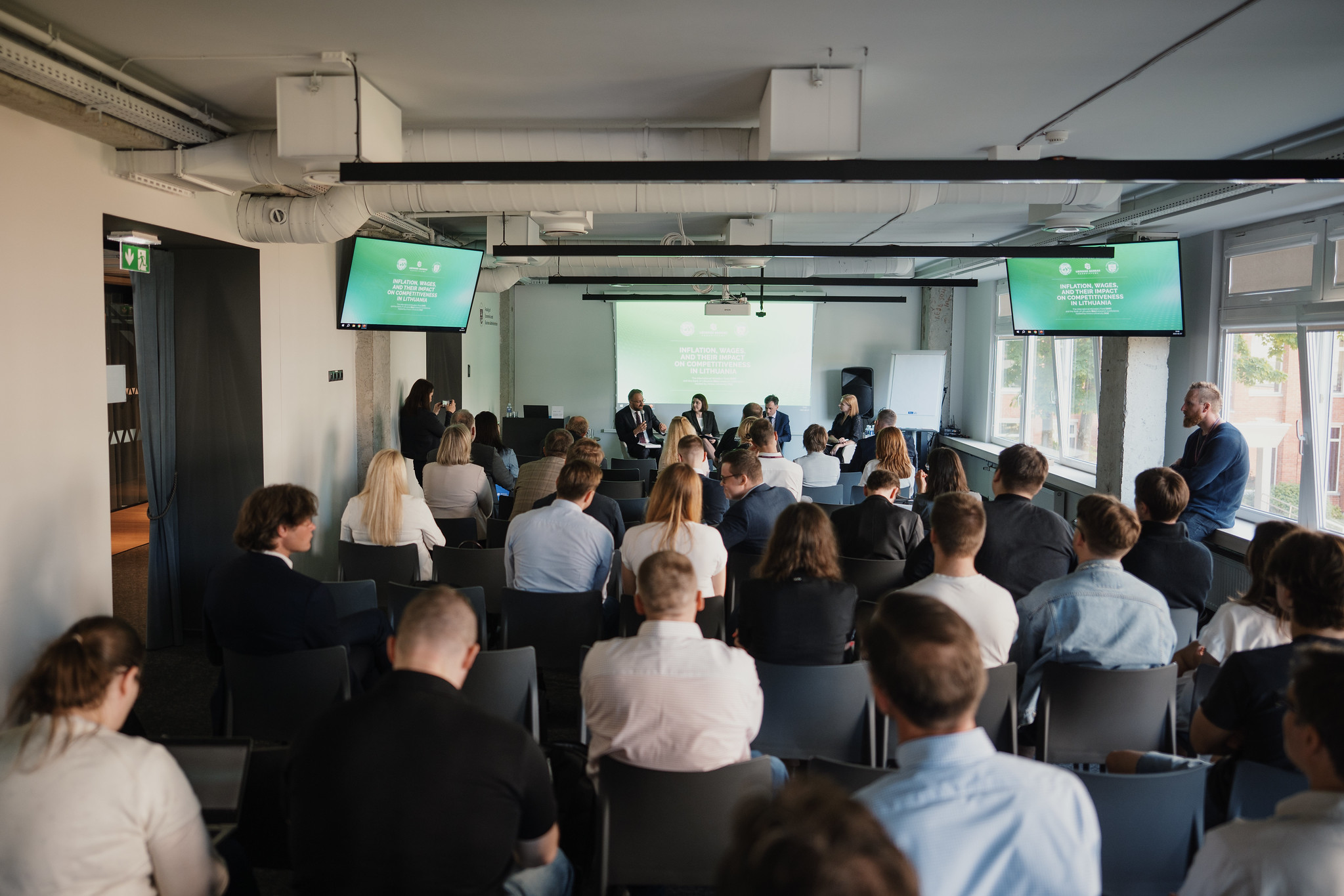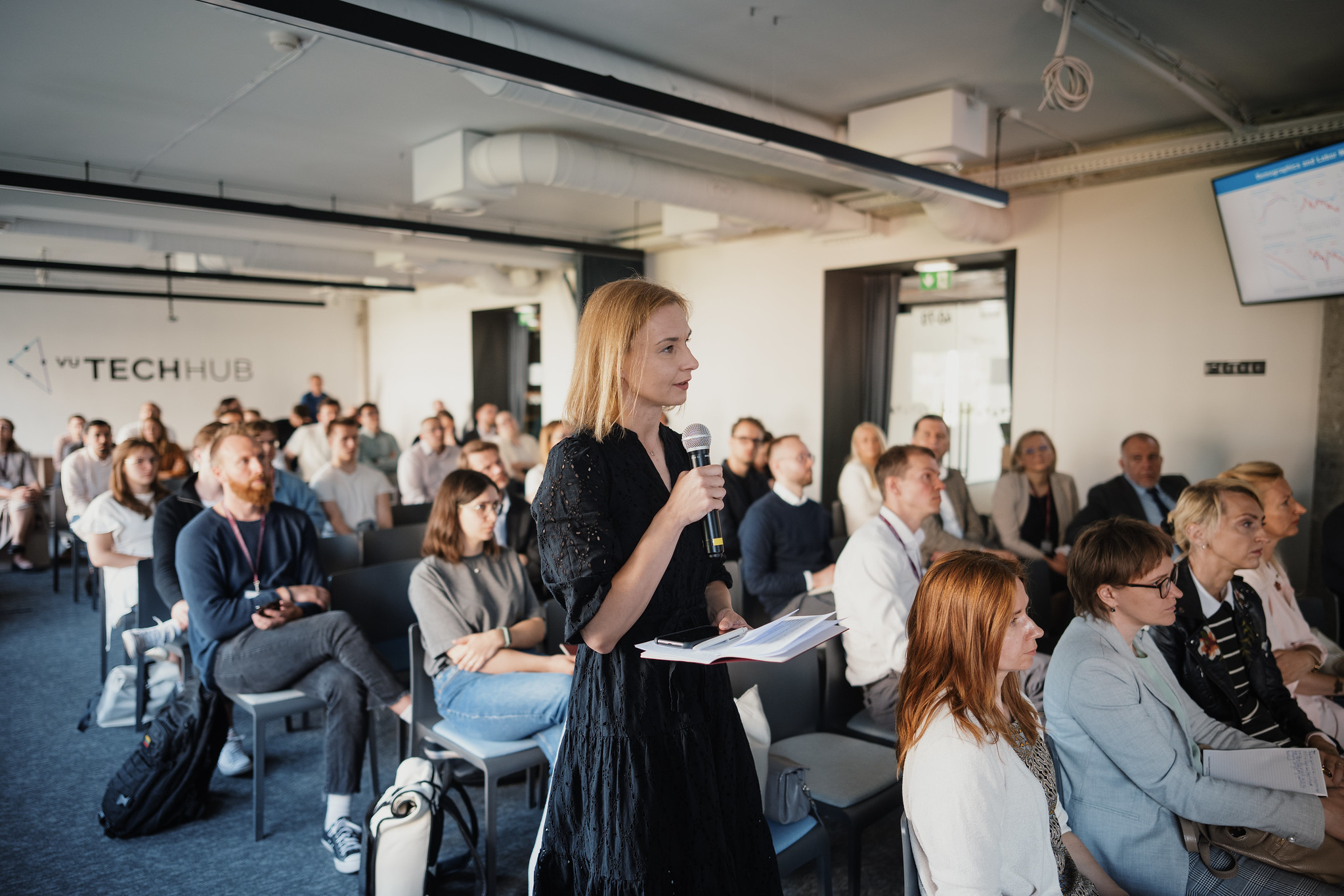On June 7th, a conference "Inflation, Wage, and Their Impact on Competitiveness in Lithuania" took place at the Faculty of Economics and Business Administration of Vilnius University. During the conference, the Chairman of the Board of the Bank of Lithuania, Gediminas Šimkus, the Minister of Finance of the Republic of Lithuania, Gintarė Skaistė, and the Head of the International Monetary Fund (IMF) mission in Lithuania, Borja Gracia, discussed the most important recent economic changes in Lithuania and the factors influencing them.
Borja Gracia has been leading the IMF mission in Lithuania since the second half of 2017. The current mission, which ends on June 12th, is his fifth and final mission in Lithuania.
The panel discussion focused on inflation and its negative impact on consumption, monetary policy tightening and its impact on external demand and investment, the recent slowdown in the manufacturing sector, and the declining labour market activity. Despite the recent negative trends, the participants of the discussions expressed their expectation that the Lithuanian economy will overcome these challenges and return to the path of growth in the near future.
The speakers also touched upon the issue of wage and price spiral, which has become a common argument among economic analysts and policy makers when discussing the threats to the economy in early 2023. The head of the IMF mission and the Chairman of the Board of the Bank of Lithuania agreed that at present, there is no wage and price spiral, and they do not expect to see it in the near future, as the pace of wage growth still largely corresponds to the observed unemployment rate and the tensions in the labor market changes, as well as the expected impact of the increase in the minimum wage.
We thank the participants and speakers for their contributions!
More photos from the conference below.
